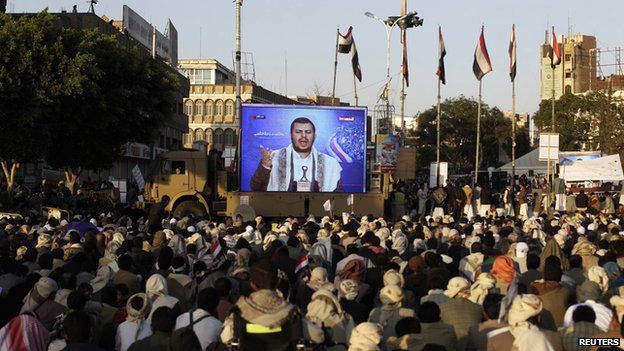
آخر تحديث في: 08-09-2021 الساعة 3 مساءً بتوقيت عدن
Ahmed Mostafa (Al-Ahram)
UN new Envoy to Yemen Hans Grundberg was greeted with a series of escalations in the conflict in the country this week, as the fighting continued both domestically and through attacks on neighbouring Saudi Arabia.
Grundberg, who assumed his new role on Sunday succeeding former UN envoy Martin Griffiths, hopes to bring an end to the Yemen Civil War.
Since Iran-backed Houthi rebels took control of much of Yemen in 2014 and the Arab Coalition intervened militarily to reinstate the internationally recognised government in 2015, the UN has been seeking a political solution to the conflict in Yemen. But peace efforts have been complicated by the intervention of hybrid state and non-state actors.
Since last year, Saudi Arabia, the main force in the Arab Coalition, has been trying to put an end to the war and reach a political settlement. The new administration of US President Joe Biden also joined the peace efforts when it entered office earlier this year, and Oman has been acting as an external mediator to bring the Saudis and the Houthis together for dialogue.
However, many analysts in the region and the West believe that the war in Yemen will not end unless there is a breakthrough in relations between the two main regional antagonists of Saudi Arabia and Iran. Yet, at every point in a possible overture between Riyadh and Tehran, the Houthi militia increases its attacks on Saudi targets, using Iranian-made drones and ballistic missiles to do so.
The most recent escalation a few days ago targeted Saudi Arabia’s eastern ports from where most of the country’s oil is exported, according to Houthi reports. But the major Saudi oil company Aramco denied that any oil facilities had been affected, whether in the east or south of the country.
The Saudi Defence Ministry said it had intercepted drones and missiles, one of the drones being destroyed in a residential area leading to two children being injured by shrapnel.
The increased attacks on Saudi civilian targets by the Houthi militia coincided with fierce fighting around Marib and other areas in Yemen itself. The Houthis attacked government forces, while the coalition bombarded Houthi positions using aerial strikes.
Dozens were killed in the recent fighting, though it is difficult to verify numbers. The war in Yemen has thus far claimed tens of thousands of lives, many of them civilians, according to UN and US estimates. Millions of Yemenis have become refugees outside Yemen or been displaced inside the impoverished country.
A Saudi commentator told Al-Ahram Weekly that the Houthi rebels were the main obstacle extending the war and hindering political settlement efforts. “Encouraged by the Iranian reluctance to stop its destabilising activities in the region, proxy militias like the Houthis in Yemen have increased their sabotaging efforts,” he said.
US, UN and Omani diplomatic attempts to achieve a breakthrough in the Yemeni conflict have not achieved much so far. The Saudi-led Coalition blames the Houthis and their Iranian backers for the failure to find a peaceful settlement, though it also admits shortfalls regarding the legitimacy of the parties it supports in Yemen.
Internal disputes, especially between the internationally recognised government and the Southern Transitional Council (STC), have contributed to weakening the position of the Saudi allies in Yemen.
“The rebels are emboldened by the differences between the different parties of the legitimate government. Riyadh has left no stone unturned in its efforts to reconcile all the parties, but it is a bumpy road,” the Saudi commentator said.
There are also mounting fears that militant groups like Al-Qaeda in the Arabian Peninsula (AQAP) might resurge in Yemen. Muslim Brotherhood affiliates in Yemen in the shape of the Al-Islah Party are now part of the internationally recognised government, even though some observers see them as a political umbrella for terrorists.
The recent developments in Afghanistan and the victory of the Taliban over US forces have inspired militant and terrorist groups in the region, including AQAP. Meanwhile, the US military involvement in Yemen, especially via drone attacks, has decreased significantly.
Emirati forces within the coalition have focused on the south of the country, but the UAE withdrew from Yemen in 2019. With part of the internationally recognised government now cosying up to militants and at odds with the southern [forces], there are fears that AQAP might regroup and strengthen its presence in Yemen.
Some pundits have repeated the conventional wisdom that “escalation leads to negotiation,” but such notions may not be applicable to the war in Yemen, as the experience of the last few months has shown.
The Iranian new government in Tehran has been talking positively about opening up to mend its relations with its Gulf neighbours, and even though such words have been spoken before, Saudi and Iranian officials are meeting to discuss security issues.
Iranian and Saudi delegations also took part in a recent regional summit meeting in the Iraqi capital Baghdad.
However, it seems that for the time being these diplomatic moves are not having any major impact on the Yemeni conflict, which has entered into a new phase of escalation.
Ahmed Mostafa
*A version of this article appears in print in the 9 September, 2021 edition of Al-Ahram Weekly.
Photo: Reuters